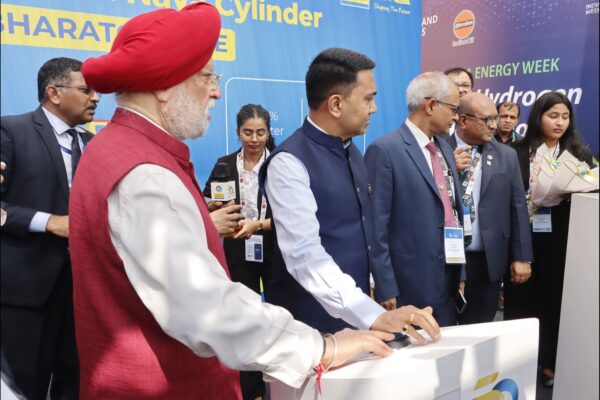Currency depreciation & impact of the same on Indian oil and gas sector: A Union Budget 2025 Perspective
by Prabhakar Kulkarni – Head BFSI Advisory, NPV & Associates LLP
In the oil and gas industry, currency depreciation is highly crucial since India imports a great deal of its energy. Further depreciation of the Indian Rupee against the US dollar continues to worsen the situation for the industry. This is thus well managed in the Union Budget 2025–2026 while keeping the economy stable and also ensuring energy security. The money set aside is Rs 55.97 billion or $646.78 million for the oil, which India would add to the Strategic Petroleum Reserves, an undertaking operated by Indian Strategic Petroleum Reserve and that will save the country from supply interruptions anywhere in the world.
There are three SPRs in southern India with a capacity of about five million tonnes. However, part of the capacity is already commercially operational with Abu Dhabi National Oil Co (ADNOC) and other such firms. Allocation comprises Rs 1.8 billion for the operation and maintenance of SPR and Rs 3.35 billion for the acquisition of land and constructing new storage caverns. Apart from the above, ISPRL intends to team up with the private sector in the building and operation of a 2.5 million metric ton petroleum reserve at Padur, Karnataka.
There are many issues affecting the Indian oil and gas industry because of its gradual devaluation against the US dollar. As an importer of more than 80% of its crude oil, the Indian economy has high exposure to changes in currency values. Inflation and household budgets are impacted by a weaker rupee since it increases the cost of importing crude oil and fuel costs for gasoline, diesel, and LPG. Indian refineries importing crude oil also suffer higher input costs, which reduces their profit margins and operational efficiency. The government may need to increase subsidies on petroleum products to shield consumers from price shocks, which may put a burden on public finances. The effect of the fuel price increases would engulf transport and other industries, which produces a ripple effect and would then result in overall inflation. In addition, the devaluation might also increase the payback price of foreign currency loans by the Indian oil and gas companies. Thus, its financial position might be weakened as well as impair their investment programme.
These policies toward sustainable energy and related issues range of proposals within the Union Budget 2025-26 for supporting them. Exploration and domestic production of crude oil and gas help in lowering down the imports resulting in an add-on for enhanced energy security. Efforts in stabilizing fuel cost as well are being undertaken by readjusting some of the taxes in getting the same price stabilization to be in place. Subsidies and tax breaks are being provided to refineries so that they may be able to cope with the increasing price of crude oil. Various firms are using energy conservation strategies to lower their gas and oil use. To cut expenses and boost supply chain effectiveness, infrastructure development is being prioritized, particularly in the areas of logistics and transportation. The additional costs for wind, solar, and green hydrogen are also to be provided in an attempt to reduce the dependence of the country on fossil fuels. The government had been supporting the rise in the domestic content in the renewables sector so that it can depend less on imports while building on policies making for a stronger and more progressive energy sector reducing vulnerabilities based on global commodity fluctuations.
















